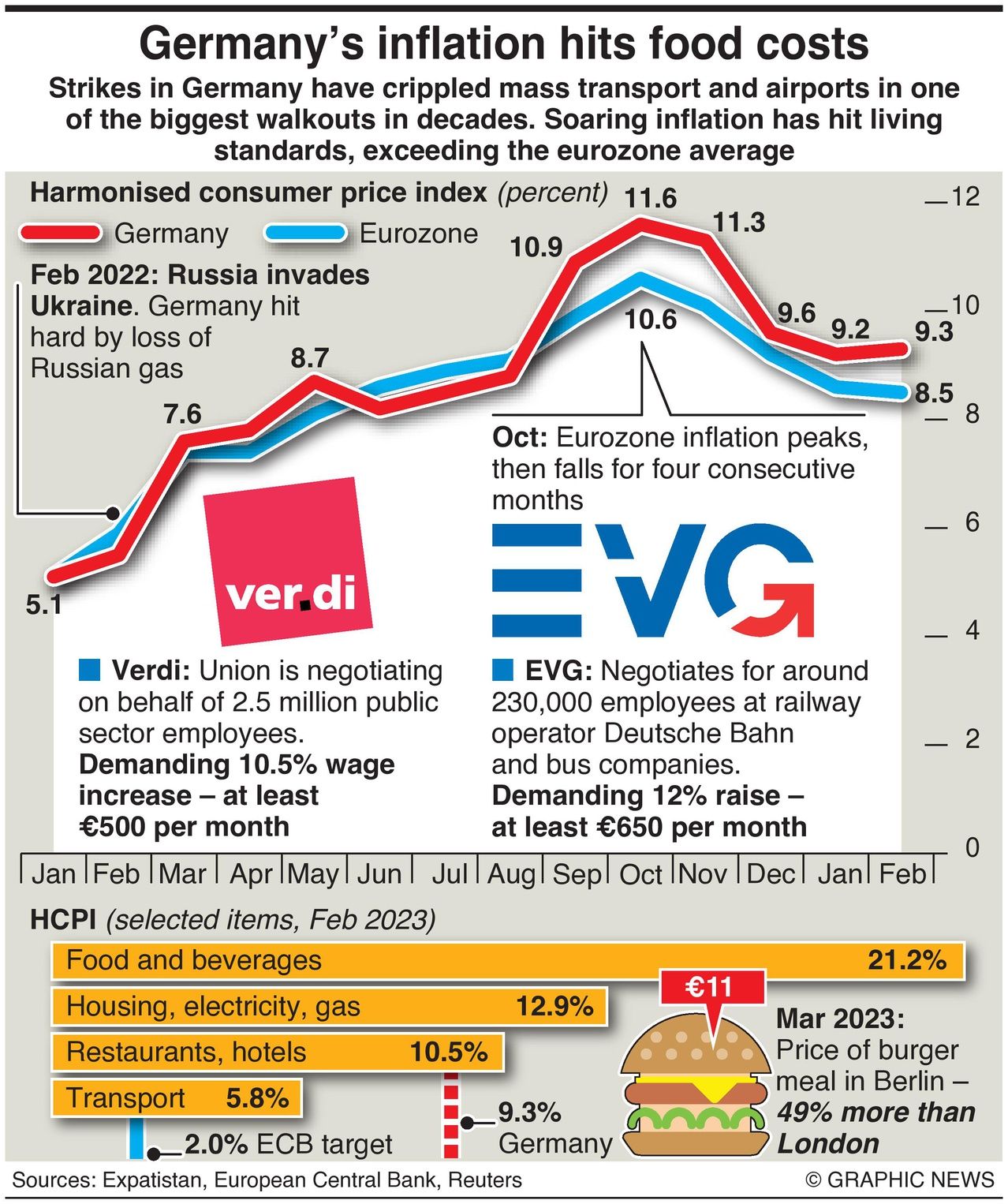Strikes in Germany have crippled mass transport and airports in one of the biggest walkouts in decades. Soaring inflation has hit living standards, exceeding the eurozone average.

Inflation in the 20-country single currency zone has fallen for four consecutive months since hitting a record high of 10.6 percent in October.
However, German consumer prices rose more than anticipated in February, up 9.3 percent, indicating that the European Central Bank must raise eurozone interest rates to tackle higher-than-expected prices.
It has been painful for millions of workers throughout the country as costs of everything from bread to rents rise after years of relatively stable prices.
A Big Mac-style burger meal in a fast food restaurant in Berlin costs around €11, 49 percent more than in London.
A month-worth of utilities -- heating, electricity, gas, etc. -- for a single person in a studio flat would cost €570, almost 250 percent above the London figure.
“It is a matter of survival for many thousands of employees to get a considerable pay rise,” Frank Werneke, head of the Verdi labor union, told Bild am Sonntag. Verdi demands a 10.5 percent wage increase, which would see pay rising by at least €500 monthly.









